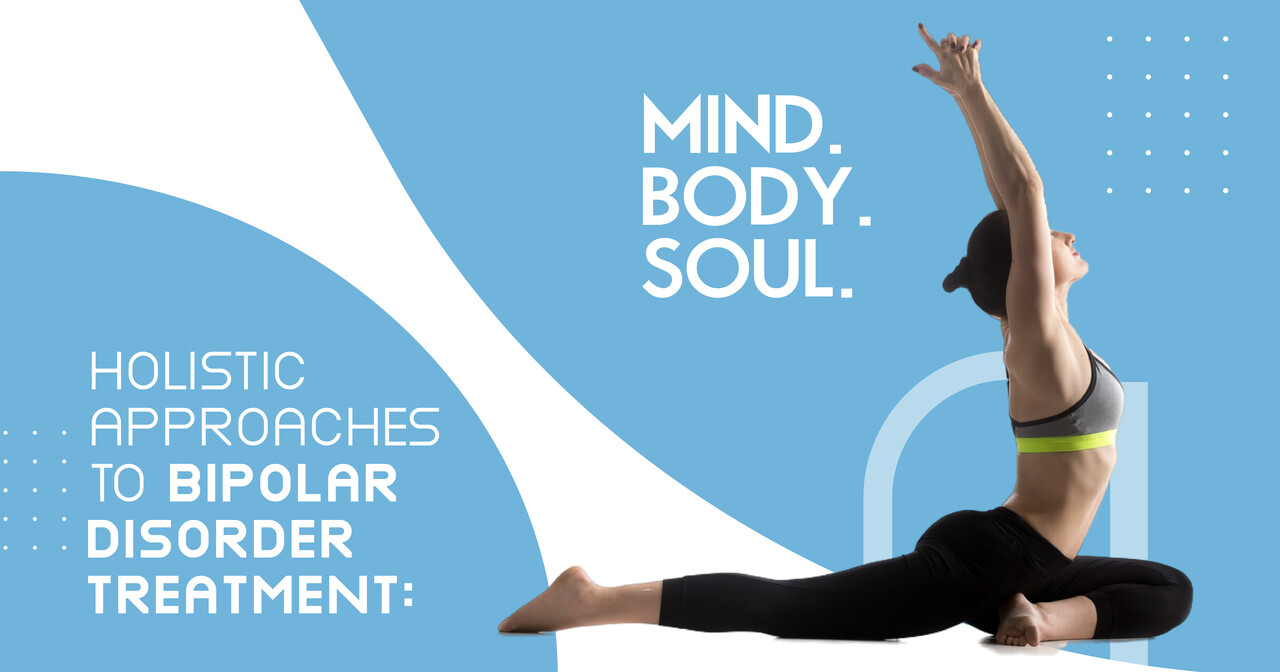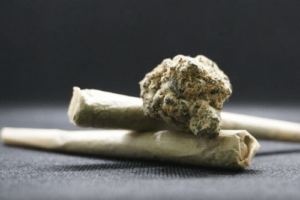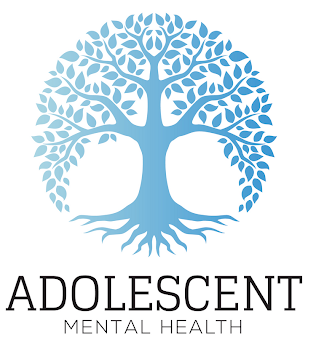Bipolar Disorder Holistic Approach: Unlocking Treatment Methods
Introduction
Bipolar disorder is a multifaceted mental health condition that impacts mood, energy, and activity levels. Known for its intense mood swings, individuals with bipolar disorder experience periods of emotional highs (mania or hypomania) and lows (depression). Traditional treatments, such as mood stabilizers and psychotherapy, are often central to managing bipolar disorder. However, a holistic approach is gaining traction, focusing on integrating lifestyle changes, natural remedies, and alternative therapies to improve mental, emotional, and physical well-being. This comprehensive guide explores how a holistic approach can help manage bipolar disorder symptoms, including those of bipolar depression, effectively and enhance quality of life.
Understanding Bipolar Disorder

Definition and Prevalence
Bipolar disorder is a complex mental health condition characterized by extreme mood swings that range from manic highs to depressive lows. This chronic condition affects approximately 2.6% of the adult population in the United States. Interestingly, women are more likely to experience depressive episodes, while men are more prone to manic episodes. Bipolar disorder does not discriminate; it can affect individuals of any age, sex, or background, though it is often diagnosed in late adolescence or early adulthood.
Symptoms and Diagnosis
The symptoms of bipolar disorder can vary widely among individuals and depend on the severity of the condition. Common symptoms include:
-
Manic episodes: These are characterized by feelings of euphoria, increased energy, and impulsivity.
-
Depressive episodes: These involve feelings of sadness, hopelessness, and a loss of interest in activities once enjoyed.
-
Mixed episodes: These are a combination of manic and depressive symptoms occurring simultaneously.
-
Mood swings: Rapid and often unpredictable changes in mood.
Diagnosing bipolar disorder can be challenging due to the overlap of symptoms with other mental health conditions. A comprehensive diagnosis typically involves:
-
Physical examination: To rule out other medical conditions.
-
Medical history: A detailed account of the individual’s health history.
-
Psychological evaluation: Conducted by a mental health professional to assess mood and behavior.
-
Laboratory tests: To exclude other potential causes of symptoms.
What Is a Holistic Approach to Bipolar Disorder?

A holistic approach involves considering all facets of a person’s life—mental, physical, emotional, and social—when developing a treatment plan. It seeks to address not only the symptoms of bipolar disorder but also the underlying factors that can exacerbate mood swings and other symptoms. By combining lifestyle modifications, diet, exercise, and complementary therapies with traditional treatments, people with bipolar disorder may find a balanced and sustainable path to managing their condition. This approach doesn’t replace medication or clinical therapies but complements them in treating bipolar disorder, aiming to improve overall quality of life.
Key Components of a Holistic Approach
1. Physical Health and Regular Exercise
Physical health is foundational in managing bipolar disorder and alleviating bipolar symptoms, as regular exercise can significantly improve mood and reduce stress. Studies have shown that physical activity triggers the release of endorphins—“feel-good” hormones that help stabilize mood. Exercise can also improve sleep quality, which is essential since poor sleep is a common trigger for manic and depressive episodes in individuals with bipolar disorder. Activities such as yoga, swimming, and walking are beneficial because they promote relaxation and can be done regularly without overwhelming the body.
Moreover, physical exercise is associated with improved psychosocial functioning, helping bipolar patients interact more positively with others and feel more connected. Regular exercise also aids in managing weight gain, a side effect of some medications, which can contribute to a sense of well-being and improved self-esteem.
2. Nutrition, Dietary Supplements, and Balanced Diet

A balanced diet is crucial for maintaining stable mood and energy levels. Certain nutrients are linked to brain health and may help in managing symptoms of bipolar disorder. Omega-3 fatty acids, commonly found in fish like salmon and in supplements, have shown promise in supporting brain function and mood stabilization. Additionally, vitamin D is essential for mental health, with deficiencies often linked to depressive symptoms. Foods rich in essential nutrients—such as leafy greens, whole grains, lean proteins, and nuts—support brain health and can reduce inflammation, which has been associated with mood disorders.
People with bipolar disorder might also benefit from avoiding foods that could worsen symptoms, such as those high in sugar and caffeine, which can lead to rapid mood changes and energy crashes. A balanced diet helps stabilize blood sugar levels and can prevent mood swings, while dietary supplements, when approved by a healthcare provider, can support nutrient intake.
3. Mindfulness-Based Cognitive Therapy (MBCT)
Mindfulness-Based Cognitive Therapy (MBCT) combines cognitive behavioral therapy techniques with mindfulness practices to help individuals manage stress, depression symptoms, and mood swings associated with manic depression. MBCT teaches people to stay present and observe their thoughts without judgment, which can reduce the intensity of mood swings and depressive symptoms by promoting emotional regulation. This therapy is especially useful for managing the cognitive impairment sometimes associated with bipolar disorder, as it encourages individuals to engage mindfully with their thought patterns and emotional triggers.
Through mindfulness practices, people can learn to identify the early warning signs of a mood shift and implement strategies to manage their responses, thereby minimizing the escalation into full-blown manic or depressive episodes. MBCT is particularly effective when integrated with other forms of therapy, such as cognitive behavioral therapy (CBT), and can support people with bipolar disorder in achieving a balanced mental health state.
4. Light Therapy for Seasonal Mood Variations
Light therapy is a non-invasive treatment that mimics natural sunlight and is especially effective for individuals with seasonal affective disorder (SAD), which is sometimes present alongside bipolar disorder. Exposure to bright light has been shown to elevate mood and increase energy levels, which can help counteract depressive symptoms. Light therapy sessions typically involve sitting near a specialized lightbox for 20-30 minutes each day, ideally in the morning. This treatment has been shown to regulate circadian rhythms, which is beneficial for those who experience mood changes in response to seasonal shifts or reduced sunlight.
For individuals with bipolar disorder, light therapy can help manage depressive episodes, particularly in the winter months. However, it’s essential to consult a healthcare provider before starting light therapy, as it can sometimes trigger manic episodes in people with bipolar disorder if used improperly.
5. Natural Remedies and Complementary Treatments
Several natural remedies, such as St. John’s Wort, are popular for mood stabilization and can help treat depression symptoms; however, people with bipolar disorder must exercise caution, as some natural remedies can interact with medications. Consultation with a board-certified psychiatrist is crucial before starting any complementary treatment. Omega-3 fatty acids, vitamins, and herbs like valerian root may provide some relief but should always be taken under professional guidance.
Alternative therapies, including acupuncture, massage therapy, and aromatherapy, have also been used to help individuals with bipolar disorder relax and reduce stress. While these therapies do not replace traditional treatments, they may contribute to a holistic approach that emphasizes self-care and stress management.
Managing Bipolar Disorder Without Medication: A Focus on Lifestyle Changes
While medication plays a vital role in managing bipolar disorder for many, lifestyle changes and holistic practices can help manage symptoms associated with psychiatric disorders, including bipolar disorder, and reduce dependency on medication or enhance its effectiveness. Here are some key lifestyle changes:
-
Mindfulness Meditation: Practicing mindfulness meditation daily can help individuals manage stress, improve focus, and reduce anxiety, making it easier to handle mood swings.
-
Cognitive Behavioral Therapy (CBT): CBT helps people identify and modify negative thought patterns, providing tools to cope with mood swings and cognitive impairment related to bipolar disorder.
-
Sleep Hygiene: A consistent sleep routine is crucial, as sleep deprivation can trigger manic episodes and worsen symptoms. Practices such as maintaining a regular sleep schedule, avoiding caffeine close to bedtime, and creating a calm sleeping environment can help improve sleep quality.
Support Systems and Triggers
Building a Support Network
Building a robust support network is crucial for effectively managing bipolar disorder. This network can include:
-
Family and friends: Educating loved ones about the condition and involving them in the treatment process can provide emotional support and understanding.
-
Mental health professionals: Working with therapists, counselors, or psychiatrists to develop a comprehensive treatment plan tailored to individual needs.
-
Support groups: Joining support groups can offer a sense of community and connection with others facing similar challenges.
-
Online resources: Utilizing forums, blogs, and other online platforms to access information and connect with others.
A strong support network can help individuals with bipolar disorder to:
-
Manage symptoms and prevent episodes.
-
Develop effective coping strategies and techniques.
-
Improve relationships and communication skills.
-
Increase feelings of support and connection.
Answering Common Questions About Holistic Treatment for Bipolar Disorder
1. What is a holistic approach to treating mood disorders?
A holistic approach to mood disorders like bipolar disorder considers the mental, physical, and emotional aspects of health, integrating lifestyle changes, nutrition, exercise, and therapy. This approach doesn’t replace traditional treatments but supports them, creating a balanced treatment plan that addresses the whole person.
2. How can I treat bipolar disorder on my own?
While self-management techniques like healthy diet, exercise, and mindfulness can aid in managing bipolar disorder, it’s essential to work with a healthcare provider to ensure safety. Self-care practices should complement a comprehensive treatment plan designed by professionals.
3. What role do lifestyle changes play in managing bipolar disorder?
Lifestyle changes, such as adopting a balanced diet, regular exercise, and maintaining good sleep hygiene, can improve physical health and mental resilience, which are crucial for managing mood swings and other symptoms associated with bipolar disorder.
The Role of Integrative Health in Bipolar Disorder Treatment
Integrative health combines conventional treatments with evidence-based complementary therapies, providing a well-rounded approach to mental health care. It includes practices such as nutrient-based therapies, light therapy, mindfulness, and dietary adjustments, all aimed at supporting brain function, emotional regulation, and physical well-being. This approach seeks to empower individuals with bipolar disorder to take an active role in their health and engage in a personalized treatment plan that aligns with their lifestyle and preferences.
Conclusion: Embracing a Holistic Approach for Long-Term Wellness
A holistic approach to bipolar disorder offers a balanced and comprehensive way to manage symptoms by addressing multiple facets of health. While traditional treatments remain crucial, the inclusion of natural remedies, lifestyle modifications, and complementary therapies can enhance quality of life, reduce the severity of symptoms, and promote long-term mental and physical well-being. By working closely with healthcare professionals and incorporating these holistic practices, people with bipolar disorder can achieve a more stable and fulfilling life.










